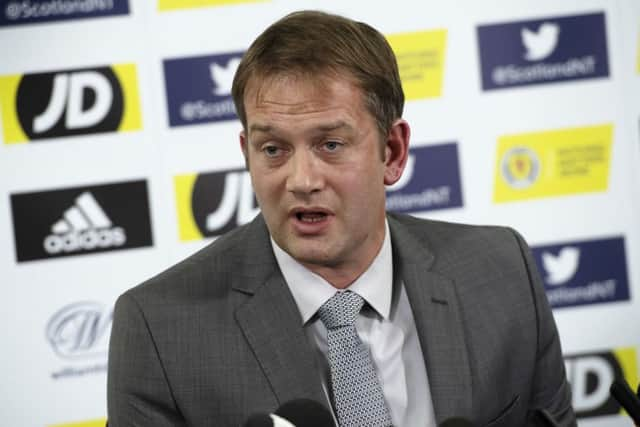SFA chief blasts ‘unacceptable’ criticism as he explains compliance officer role
The governing body’s disciplinary process has been widely criticised this season due to a number of controversial calls from officials.
As well as the referees themselves, Whyte has been singled out for her part in the process, with managers like Kilmarnock’s Steve Clarke and Rangers boss Steven Gerrard wanting more “consistency” with regards to on-the-park incidents that are selected for retrospective action.
Advertisement
Hide AdAdvertisement
Hide Ad

However, Maxwell feels the condemnation has gone beyond what is acceptable.
He said in a statement: “In terms of our disciplinary procedures, I am compelled to remind all stakeholders – including supporters – that the role of the compliance officer is to act independently and in accordance with the rule book with which she is provided.
“Notwithstanding the Judicial Panel Protocol has now been in operation since 2011, misunderstanding on the remit of the compliance officer not only endures but in recent weeks the criticism of the incumbent has been unacceptable. Not only has it been personal in nature, it has also been grossly unfair.”
Maxwell went on to explain in full the process by which the compliance officer judges whether or not retrospective action can and should be taken, and how the final decision is made.
He continued: “The role of compliance officer is to ensure that all those involved in Association Football in Scotland observe the Disciplinary Rules, which includes reviewing misconduct missed by match officials and to subsequently raise a notice of complaint where appropriate.
“One of the major changes made this season, agreed by all stakeholders, was to remove the burden on the compliance officer of having to decide both whether an incident was worthy of review and what the outcome of that review should be. Contrary to opinion, the compliance officer does not offer any judgement on any incident.
“When an incident has been identified, the compliance officer asks one fundamental question: was the incident seen, in its entirety, by the match officials?
“If the answer is yes, the matter is closed pursuant to IFAB Law 5: the match official’s decision is final.
Advertisement
Hide AdAdvertisement
Hide Ad“If the answer is no – due to either the incident being completely missed (such as an off the ball incident) or that a significant part of the incident has been missed because the match official’s view has been obscured or blocked – the incident is referred, independently, to three former category one referees.
“Each of these experts are then asked whether the incident would have resulted in a sending off offence or deemed an act of simulation had it been witnessed at the time. If all three independently reach the unanimous view that the unseen incident constituted one of these, the matter is then progressed. If not, then no retrospective action can be taken.
“From then on it is for the fast track tribunal to determine whether there has been a breach of the disciplinary rules.
To reiterate: the compliance officer does not decide what action is taken, she simply refers unseen incidents for consideration in line with the terms of the protocol.
“It is worth noting that the member clubs were emphatic in their approval of a more robust set of legal procedures to deal with on and off-field misconduct in 2011. The success of the system since its inception cannot be undervalued.
“While the Scottish FA is the custodian of on-field disciplinary rules, nevertheless there is a responsibility on all stakeholders to promote the best aspects of our national game and to operate collectively with its best interests at heart.”
